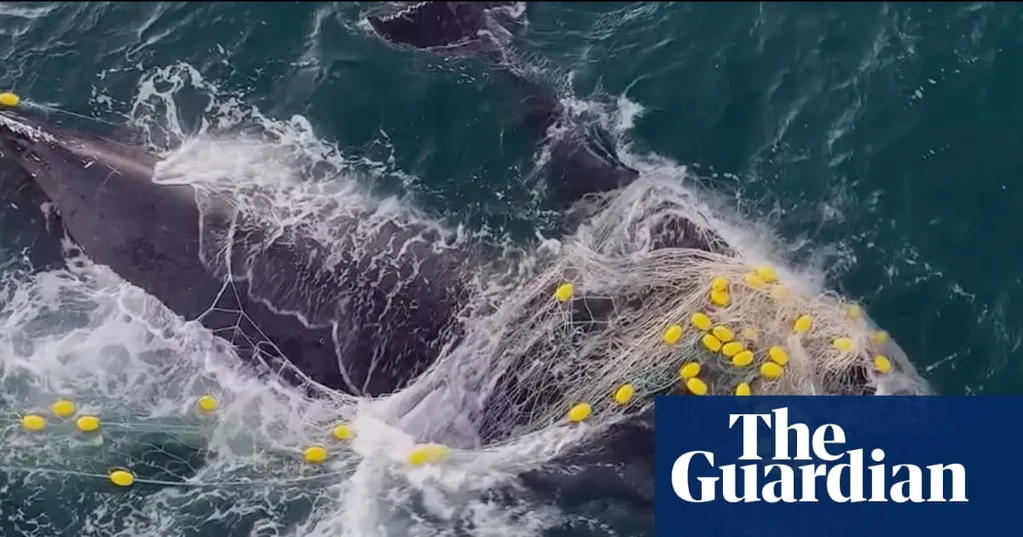'Heartbreaking' drone footage has captured the moment a mother and calf became trapped. Four humpbacks have been snared in recent days.
A whale entangled in a shark net about five days ago with her calf is yet to be fully freed, two of four humpback whales to be entangled in shark nets off the coast of Queensland in recent days.
Dr Olaf Meynecke, who researches marine mammals at Griffith University, said humpback whales were caught in shark nets every year, but this was the first time involving four whales trapped at the same time.
On Wednesday, drone footage captured the moment a mother and calf became trapped in a shark net off Noosa. Meynecke said the footage clearly shows the stressed mother rolling into the net, and "actually wrapping up the calf".
That pair were freed on Wednesday night, according to Queensland's department of primary industries. However, Meynecke said the mother had been observed with some gear still attached.
In a separate incident, Meynecke said another mother has dragged a shark net from Rainbow Beach all the way to Hervey Bay. Queensland fisheries officers and a trained marine animal response team were still working to free that animal on Thursday afternoon.
There are 27 shark nets in Queensland and 51 in New South Wales. As large numbers of whale mothers and newborns make their way south, spending time near the shore, they are at risk of entanglement.
In July, the NSW government announced it would trial the removal of the controversial nets from three Sydney and Central Coast beaches, but has paused plans after a fatal shark attack near Dee Why.
Whale entanglements have increased in the past 10 to 15 years, Meynecke said, with the focus shifting from the Gold Coast to the Sunshine Coast in recent years.
The vast majority of incidents involved mothers and calves, he said.
"It appears that the adults are actually aware of the danger - and are likely communicating about the places of danger as well. But the calves obviously don't know, and get entangled. Then the mums freak out, and stay nearby, then they are getting entangled as well."
Whale scientist Dr Vanessa Pirotta said the footage of the whales caught in the net off Noosa was "heartbreaking".
She said calves in that situation were particularly vulnerable - still reliant on their mum for milk, stressed and at risk of drowning.
"Every entanglement is likely to be different, but if it really restricts their movement and then ultimately doesn't allow them to do anything, they may literally drown in shark nets."
Pirotta said it was a reminder for people to report such incidents as quickly as possible.
"Because there are so many eyes on the ocean, it's incredibly important if people see something like this, they report it immediately,"
she said.
"The sooner that we know about it, the greater chance of survival these animals will have."
A spokesperson for the department of primary industries thanked those who had contacted the hotline.
"We remind the public that for their own safety, it is dangerous to approach or try to release whales trapped in nets,"they said.
